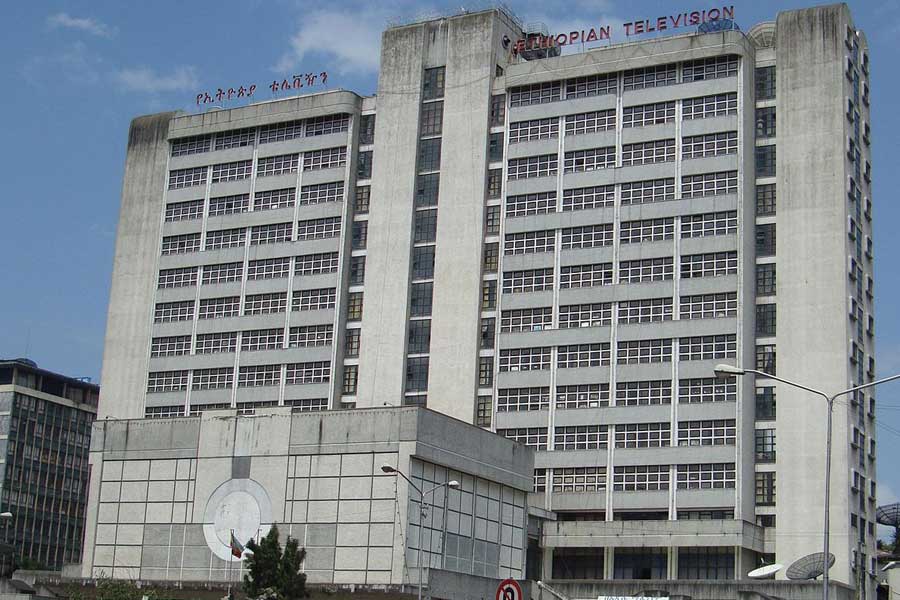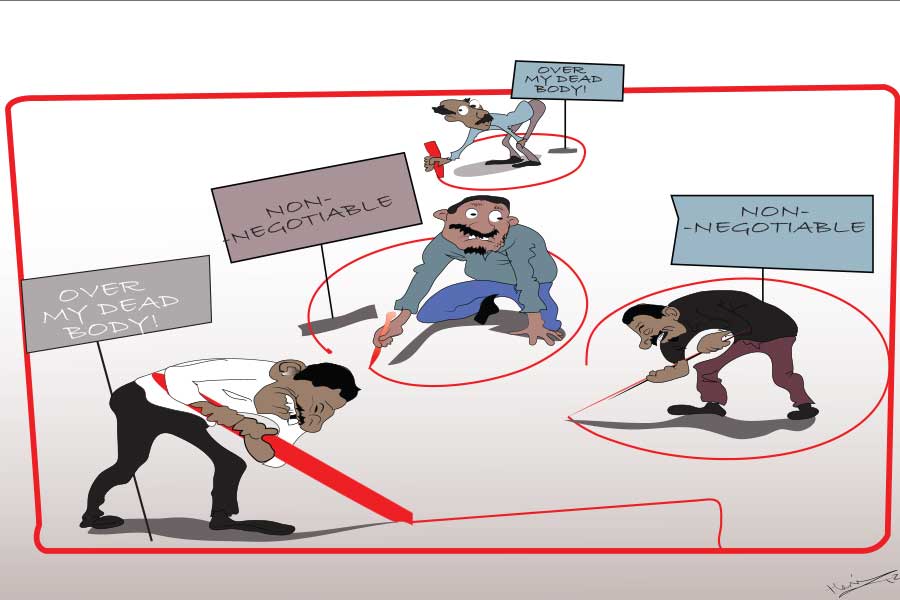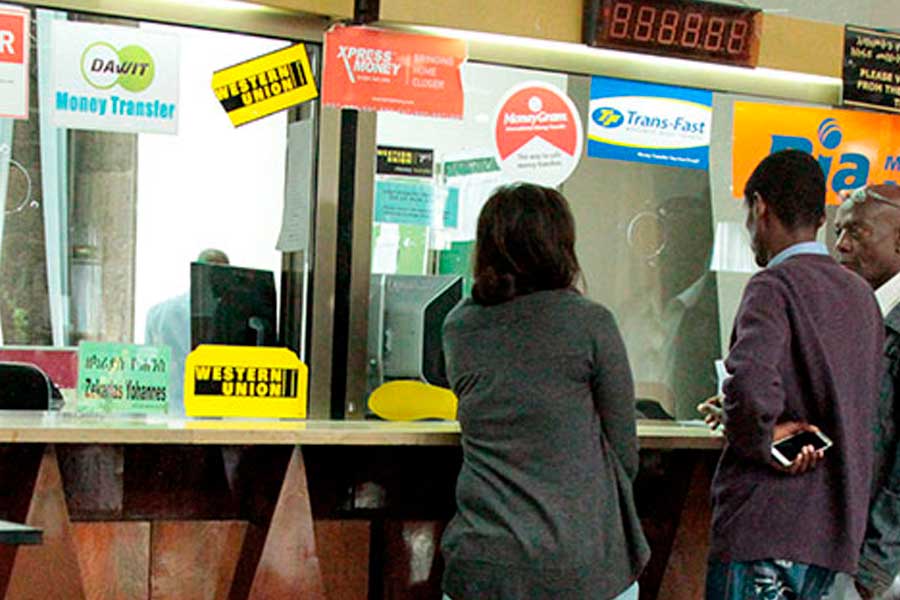
Commentaries | Jul 10,2020
May 31 , 2020.
Prime Minister Abiy Ahmed (PhD) has come a long way since his spectacular arrival at the top of Ethiopia’s political scene. In 2018, few would have predicted a state of political uncertainty would, in combination with economic, social and natural disasters all coming together, evolve to unravel almost every facet of life. The Prime Minister is as much to blame as the slew of unprecedented challenges that were visited upon the country.
Two years ago, standing before parliament, Prime Minister Abiy acted and sounded like a leader ready to offer the country a break in an inclusive future.
Alas! He would later on charge the very parliament that installed him as Prime Minister of having questionable legitimacy. The swearing-in speech was perhaps his most significant performance, carefully delivered to herald the coming of a more refined and prosperous future while also walking a fine line to convey that the foundation for this would be the preservation of the status quo.
Running a state that has no functioning democratic, if not credible, institutions, or the social infrastructure to accommodate rapid changes with several orders of magnitude, is more complicated than is advertised by many in the opposition. Attempting to do this without a clear mandate might have been a tall order. It was no different for Prime Minister Abiy, and each year has brought fresh challenges that are compounding to pose an existential threat to the Ethiopian state.
There are many such threats from every corner. They are daunting tasks in themselves, which should worry the Prime Minister and members of his administration most. But it is clear which one is the most unprecedented of these challenges: the Novel Coronavirus (COVID-19) pandemic.
With the spread increasing only recently, it has sounded the alarm that Ethiopia is not out of the woods just yet. Confirmed cases have crept up into the hundreds, and a growing proportion of these are cases of community spread. Overturning assumptions that the virus might not be as infectious and fatal, it has shown that COVID-19 can stress the health system, take lives, afflict productive human power and weigh heavily on the mental well-being of citizens and the collective psyche of society.
COVID-19 is a unique sort of virus, for which there is no treatment, vaccine or comprehensive understanding of its epistemology. Thus, its impact extends beyond public health infrastructure. For low-income countries such as Ethiopia, it is first an economic challenge. Through an attempt to contain the virus via the only way the health establishment knows now, by restricting the physical movement of people, economic activity has fallen, taking productivity down with it.
Combined with disruptions in global supply chains and logistics and depressed investor confidence caused by local political uncertainty, Ethiopia is set to lose millions of jobs and grow at one of its slowest rates in two decades. Even if the economic activities were to pick up rapidly in the pattern of the much anticipated “V-shaped" recovery model, the headache from the already lost productivity would still produce lingering socio-political problems for the next few years.
The threat to health and economic well-being posed by COVID-19 would have tested the courage, determination and patience of any government, let alone one that lacks the fiscal space, the infrastructure, and the political mandate to address challenges of this type.
But Prime Minister Abiy’s headaches do not end there. He also has to lose sleep over a threatening locust outbreak. The United Nations warns of a severe food crisis, expected of the worst type of locust invasion to hit the country in a quarter century. Combined with the COVID-19 pandemic, there have been few times in the country’s history where public welfare has been as endangered.
Just as big a worry is the escalating dispute with Egypt over the use of the Nile River. With Ethiopia planning to start filling the waters for the Great Ethiopian Renaissance Dam (GERD) next July, the disagreement has taken on increasingly worrying turns. Few would agree that there is a real chance of military conflicts between the two countries; but, the rhetoric of war and display of military powers do not give confidence for a negotiated settlement.
Such challenges in a country that has only recently been airing its laundry in the open, and when historical grievances are reasserting themselves with a vengeance, it will not be easily surmountable. Where the state is concerned, this may be what breaks the camel’s back.
It is tempting to sympathise with the administration of Abiy Ahmed. Even the most cynical of the Prime Minister’s detractors would find it hard to argue the administration is having a jolly time governing a country under such testing circumstances.
What concerns the country should be as much a threat to the administration's interest. In the same token, its success in containing the spread of COVID-19 and the locust infestations; addressing the nation’s economic malaise; negotiating a favourable deal with Egypt; and realising stability through political bargain ought to be just as much in the interest of the country as they are in Prime Minister Abiy’s administration.
None of this can be achieved without the party in government being able to achieve a popular mandate. It needs to win the trust of the public if it wants to mobilise the economic resources it requires and limit the political rights it has to in its effort to address such challenges.
At the outset of his premiership, Abiy was able to buy a level of public goodwill, even if in large part this was due to his appeal to break away from the past in the exercise of power and style of leadership. This was lost as the administration shed the principles it had promised to stand by. Over two years, it has become opaque and less willing to account for its shortcomings. Most importantly, it failed to realise a negotiated settlement with those in the opposition.
There has never been a grand bargain, as the promise of a more inclusive future has all been sacrificed at the altar of populist sentiments. Now a state is being remade in the image of Prime Minister Abiy. With national elections put on hold indefinitely, the administration will soon find itself not just without the political currency it requires to be able to address the complicated problems the country faces but with questionable governing legitimacy.
The wisdom of Thomas Hobbes is due here. A pioneer of the social contract ideal as a political foundation in the organisation of societies, it is Hobbesian to contend any rational person would support and be loyal to a state to which they belong. But Hobbes also held that citizens` responsibility to submit to the wishes of the state is contingent on the state's upholding its side of the bargain: the social contract.
Prime Minister Abiy's administration should see that it has not done a great deal of favour to itself for not upholding its side of the bargain. The task that requires his most considerable attention should be to buy public goodwill. With national elections effectively off of the table after the National Electoral Board said it would take longer than a year to prepare, the only other alternative is a negotiated settlement.
During his inauguration - and in the two years since - the Prime Minister promised to break from the past and fashion an inclusive vision and path forward for the country. He needs to go back to the drawing board and take a page out of the book of a slightly younger and idealistic version of himself. There are no shortcuts or alternatives to what the administration has been trying to escape. It needs to sit down with the political opposition and other social forces to negotiate, compromise and come to a grand bargain.
Upon failure, it will be folly of it to think it can save the state, nor itself.
PUBLISHED ON
May 31,2020 [ VOL
21 , NO
1049]

Commentaries | Jul 10,2020

Fortune News | May 23,2020

Editorial | Jan 04,2020

Featured | Sep 19,2020

Fortune News | Apr 22,2022

My Opinion | 132105 Views | Aug 14,2021

My Opinion | 128507 Views | Aug 21,2021

My Opinion | 126435 Views | Sep 10,2021

My Opinion | 124046 Views | Aug 07,2021

Dec 22 , 2024 . By TIZITA SHEWAFERAW
Charged with transforming colossal state-owned enterprises into modern and competitiv...

Aug 18 , 2024 . By AKSAH ITALO
Although predictable Yonas Zerihun's job in the ride-hailing service is not immune to...

Jul 28 , 2024 . By TIZITA SHEWAFERAW
Unhabitual, perhaps too many, Samuel Gebreyohannes, 38, used to occasionally enjoy a couple of beers at breakfast. However, he recently swit...

Jul 13 , 2024 . By AKSAH ITALO
Investors who rely on tractors, trucks, and field vehicles for commuting, transporting commodities, and f...

Jul 13 , 2025 . By YITBAREK GETACHEW
The Addis Abeba City Revenue Bureau has introduced a new directive set to reshape how...

Jul 13 , 2025 . By BEZAWIT HULUAGER
Addis Abeba has approved a record 350 billion Br budget for the 2025/26 fiscal year,...

Jul 13 , 2025 . By RUTH BERHANU
The Addis Abeba Revenue Bureau has scrapped a value-added tax (VAT) on unprocessed ve...

Jul 13 , 2025 . By NAHOM AYELE
Federal lawmakers have finally brought closure to a protracted and contentious tax de...